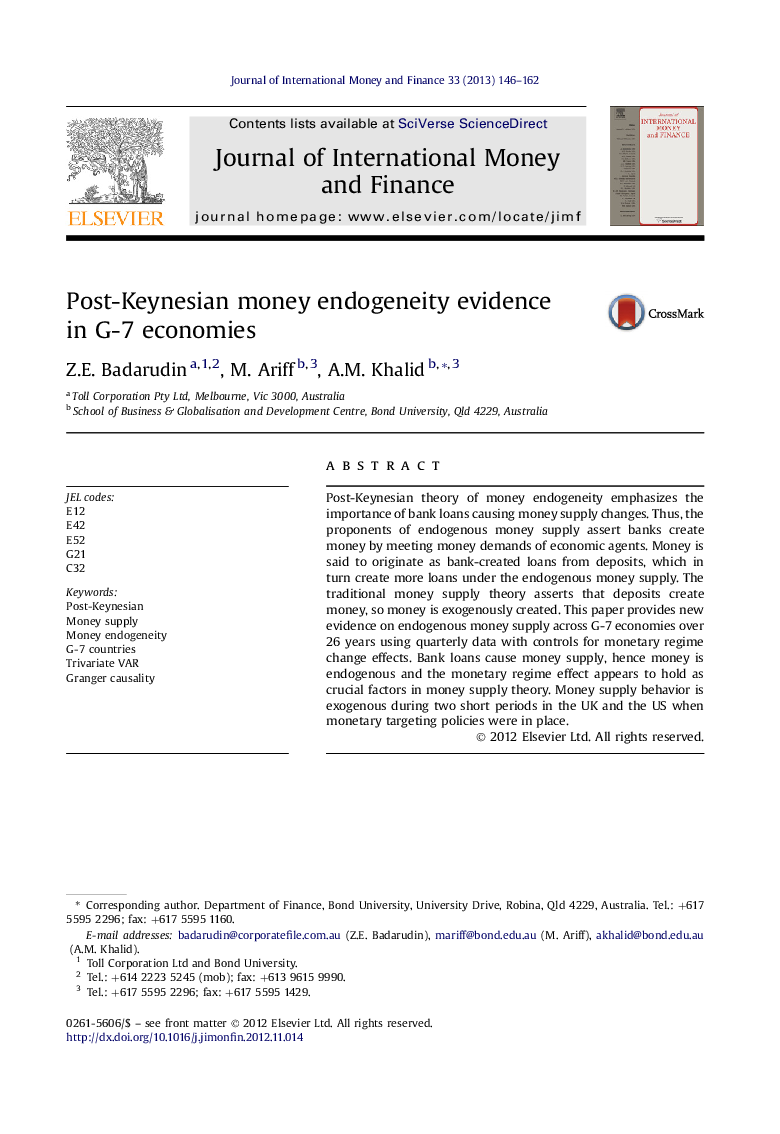| کد مقاله | کد نشریه | سال انتشار | مقاله انگلیسی | نسخه تمام متن |
|---|---|---|---|---|
| 963960 | 1479183 | 2013 | 17 صفحه PDF | دانلود رایگان |

Post-Keynesian theory of money endogeneity emphasizes the importance of bank loans causing money supply changes. Thus, the proponents of endogenous money supply assert banks create money by meeting money demands of economic agents. Money is said to originate as bank-created loans from deposits, which in turn create more loans under the endogenous money supply. The traditional money supply theory asserts that deposits create money, so money is exogenously created. This paper provides new evidence on endogenous money supply across G-7 economies over 26 years using quarterly data with controls for monetary regime change effects. Bank loans cause money supply, hence money is endogenous and the monetary regime effect appears to hold as crucial factors in money supply theory. Money supply behavior is exogenous during two short periods in the UK and the US when monetary targeting policies were in place.
Journal: Journal of International Money and Finance - Volume 33, March 2013, Pages 146–162